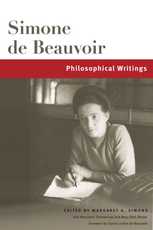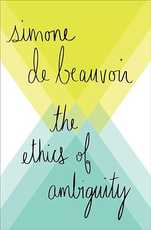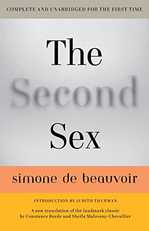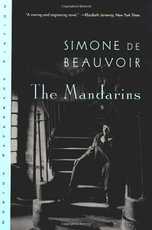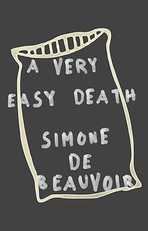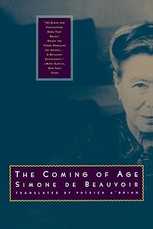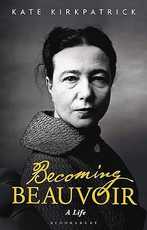
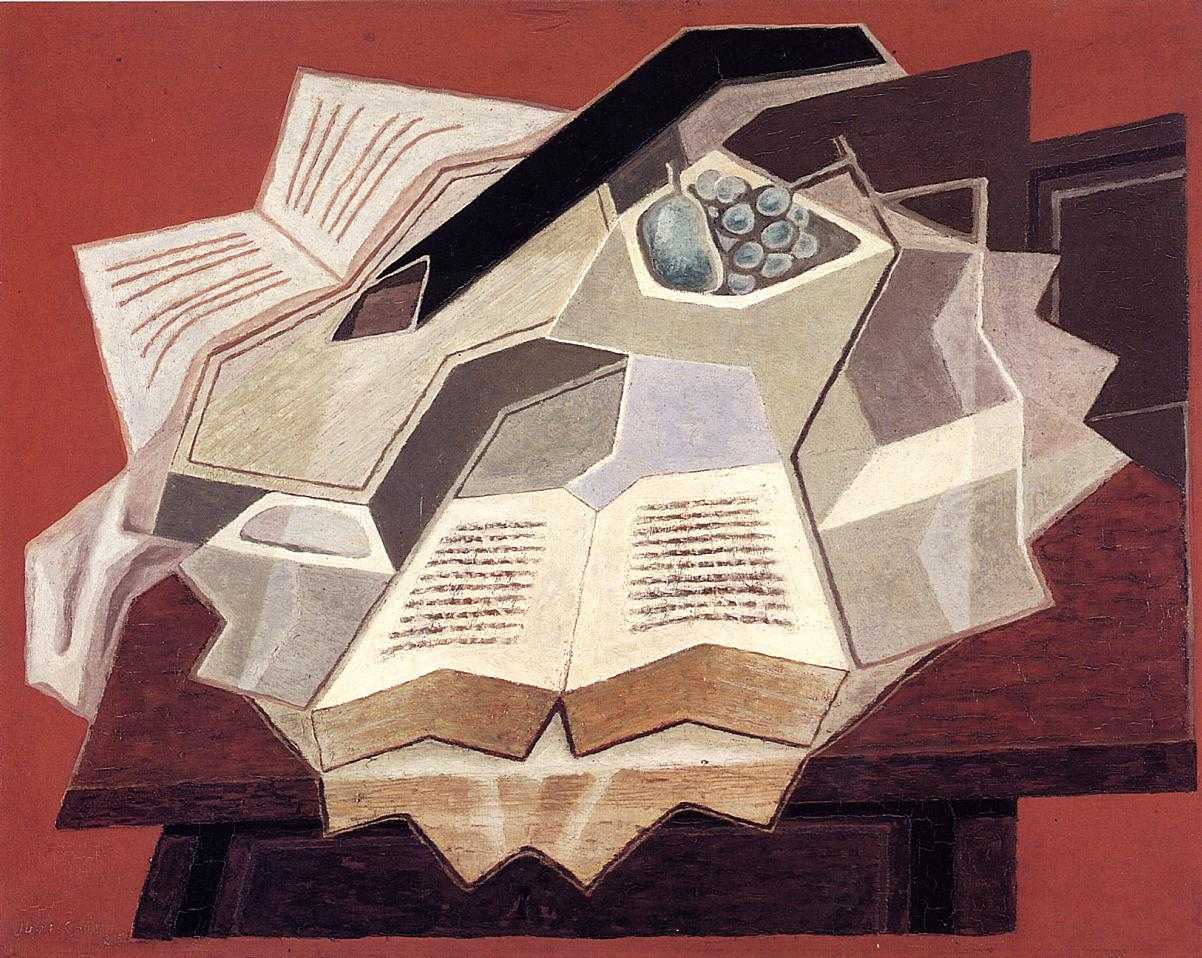
Simone de Beauvoir The Best 7 Books to Read
Simone de Beauvoir (1908 - 1986) was a philosopher whose work significantly influenced existentialism, ethics, and feminist theory.
Along with fellow French thinkers Jean-Paul Sartre and Albert Camus (see my list of Camus’s best books here), Beauvoir was an intellectual celebrity of the mid-20th century, and her many writings continue to provoke and inspire today.
Perhaps best known for her view that, “One is not born, but rather becomes, a woman”, Beauvoir’s analysis of how social roles are propagated by society laid the groundwork for second-wave feminism, widening the scope of gender equality beyond property ownership and voting rights.
Beauvoir’s theory of ‘authentic love’, for example, typifies her application of existentialist philosophy to concerns around gender, identity, and power relations.
However, while her contributions to feminist theory are immense, Beauvoir should not be pigeonholed, for she wrote insightfully and compellingly across a whole range of topics and mediums — a celebrated author of novels and memoirs as well as philosophical treatises. For instance, Beauvoir also applies her critical eye to aging, work, and retirement.
In one concise email each Sunday, I break down a famous idea from philosophy. You get the distillation straight to your inbox:
💭 One short philosophical email each Sunday. Unsubscribe any time.
This reading list consists of the best books on and by Simone de Beauvoir. After reading some of the titles on this list, you’ll understand why this great French philosopher remains such a fascinating, intriguing, challenging thinker.
Let’s dive in!
1. Becoming Beauvoir: A Life, by Kate Kirkpatrick
Given Beauvoir’s stated aim was to ‘live out’ her philosophy, the story of her rather unconventional life receives much attention. Unfortunately, Beauvoir’s intimate connection to Sartre often overshadows the fact that she was a fiercely independent thinker who carved her own path through life.
Indeed, Beauvoir and Sartre were lifelong partners, but never married, and each had many other love affairs; both experienced and had much to say about the transformative period of the Second World War; both had famous meetings with many other intellectuals and artists of the time.
In her brilliant 2019 Becoming Beauvoir: A Life, the philosopher Kate Kirkpatrick does a wonderful job in showing us Beauvoir not in relation to others but as her own full person.
Making use of new materials translated into English for the first time, including Beauvoir’s student diaries, written before meeting Sartre, Kirkpatrick shows how Beauvoir’s intellectual life was shaped not by her contemporaries, but by preoccupations that were with her from an early age.
If you’re looking to understand Beauvoir’s life beyond the myth and hearsay, Becoming Beauvoir: A Life is a brilliant modern biography, and comes highly recommended.
Special mention must be made, too, to Deirdre Bair’s 1991 Simone de Beauvoir: A Biography, which is based not just on research but on five years of direct interviews with Beauvoir herself.
Finally, Beauvoir’s own four-part autobiography, particularly the first volume, Memoirs of a Dutiful Daughter, provides fascinating first-hand insight into the life and mind that produced some of the 20th-century’s most enduring philosophical writings.
2. Philosophical Writings, by Simone de Beauvoir
Turning from biography to philosophy, and perhaps there’s no place better to start than with the 2021 Philosophical Writings, edited by Margaret A. Simons.
Philosophical Writings is a collection of Beauvoir’s early philosophical essays, now translated into English for the first time, each excellently introduced and contextualized by modern Beauvoir scholars.
Perhaps the standout piece is Pyrrhus and Cineas, a 1944 essay written two years before Sartre’s famous Existentialism is a Humanism, which shows that Beauvoir’s philosophy does not echo existentialism, it very much informs it. In clear, direct, brilliant writing, Beauvoir critiques Sartre, and lays the groundwork for the ethics of existentialism.
As an accessible introduction to Beauvoir’s broad philosophical project, Philosophical Writings is a fantastic place to start.
3. The Ethics of Ambiguity, by Simone de Beauvoir
Following Pyrrhus and Cineas, Beauvoir continues her articulation of an ethics for existentialism in her brilliant 1947 The Ethics of Ambiguity.
In clear, accessible, insightful prose, Beauvoir again demonstrates her novel developments of existentialism away from Sartre, and adds detail and weight to her position that authentic individual freedom requires respect for the freedom of others.
If you’re looking to understand Beauvoir’s key contributions to existential ethics, then The Ethics of Ambiguity is a great choice (it also features on my list of existentialism’s best books).
4. The Second Sex, by Simone de Beauvoir
The book for which she is best known, Beauvoir’s 1949 The Second Sex is the 20th century’s seminal account of how social roles for women are constructed and propagated.
Beginning with a detailed, powerful survey of how women are viewed and treated, Beauvoir then opens her analysis with the famous line,
One is not born, but rather becomes, a woman.
From childhood, women are subject to mystification about their own freedom, Beauvoir writes:
It is difficult for men to measure the enormous extent of social discrimination that seems insignificant from the outside and whose moral and intellectual repercussions are so deep in woman that they appear to spring from an original nature.
Beauvoir’s analysis laid the intellectual groundwork for second-wave feminism, widening the scope of gender equality beyond property ownership and voting rights.
The Second Sex also includes some of Beauvoir’s most powerful writing on existentialism, rendering it essential for any aspiring scholar of Beauvoir, existential philosophy, or feminist theory (it also features on my list of political philosophy’s best books).
5. The Mandarins, by Simone de Beauvoir
Beauvoir didn’t just write essays and philosophical analyses, she also made significant contributions to literature.
One of her most highly-regarded efforts is The Mandarins, a brilliant novel set in post-war Paris featuring thinly-disguised characterizations of Beauvoir’s intellectual circle, including Camus and Sartre (along with their political conflicts). The Mandarins won Beauvoir France’s highest literary prize, the Prix Goncourt.
Special mention, too, must go to Beauvoir’s first novel, She Came to Stay, a vibrant tale of love, jealousy, obsession, revenge — which is generally considered among the classics of 20th-century French literature.
6. A Very Easy Death: A Memoir, by Simone de Beauvoir
Beauvoir’s 1964 A Very Easy Death is her short, beautiful, and raw reflection on the death of her mother, with whom she had a difficult and complicated relationship (for the most part, her mother lived the kind of duty-bound life that Beauvoir picked apart in The Second Sex).
In this devastating, brutally honest day-by-day account, Beauvoir describes the indignity of her mother’s suffering and treatment. She offers profound reflections on mortality, and important insights for how we might, in the end, be reconciled.
7. The Coming of Age, by Simone de Beauvoir
In her 1970 book The Coming of Age, Beauvoir sets out to do for old age what she did for women with The Second Sex: add an authentic voice to challenge the dominant constructs and assumptions of society.
Why must old people endure a tacit and increasingly explicit separation from younger communities? Beauvoir begins her investigations with a succinct cross-cultural analysis spanning thousands of years, but it is when she turns her analysis to the personal psychology of becoming old that her insights feel as fresh and urgent as ever. She writes:
Die early or grow old: there is no alternative… old age is the general fate, and when it seizes upon our own personal life we are dumbfounded… can I have become a different being while I still remain myself?
Pertinent for anyone who plans on becoming old, The Coming of Age finds an aging Beauvoir at the top of her game. You can read my overview of Beauvoir's arguments on aging, work, and retirement here.
Further reading
Are there any other books you think should be on this list? Let us know via email or drop us a message on Twitter or Instagram.
In the meantime, why not explore more of our reading lists on the best philosophy books:

View All Reading Lists
Essential Philosophy Books by Subject
About the Author

Get one mind-opening philosophical idea distilled to your inbox every Sunday (free)

From the Buddha to Nietzsche: join 25,000+ subscribers enjoying a nugget of profundity from the great philosophers every Sunday:
★★★★★ (100+ reviews for Philosophy Break). Unsubscribe any time.

Latest Breaks
Each philosophy break takes only a few minutes to read, and is crafted to expand your mind and spark your curiosity.
